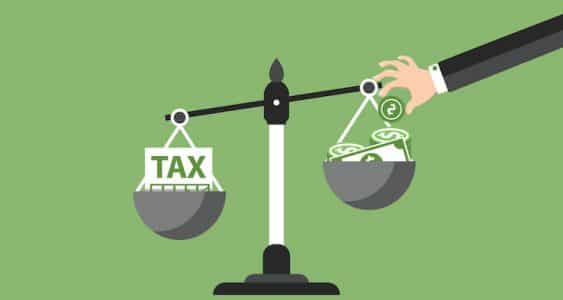
The 12 Best Books on Annuities
Often cloaked in jargon and misconceptions, annuities are a complex financial instrument with fees, surrender charges, and other complexities. Therefore, if you’re considering adding annuities
Retirement savings can be a challenging endeavor. But, as soon as you determine how much money you must save for retirement, that’s when the real planning can get underway.
Retirement savings options include 401(k) plans through employers, individual retirement accounts (IRAs), and Social Security. However, there are also the misunderstood and underutilized annuities.
Although annuities can supplement your retirement income, there is no guarantee that they will work for you. What’s more, annuities can be complex and expensive. Thankfully, the team of experts at Due can assist you in deciding whether or not an annuity is right for you. We do this through unbiased and easy-to-understand articles and guides to answer the most common annuity questions, such as the following.
The term “annuity” refers to a contract between you and an insurer. As a policyholder, you either pay a lump sum of money to the insurance company or pay it in installments over time. Upon receiving those funds, the insurance company invests them so that you’ll receive a series of guaranteed payments.
As compared to other insurance contracts, the payments aren’t conditional upon an unfortunate occurrence. Instead of making a claim, the customer decides how their payouts will be made. Usually, this is at a later date, like 20-years from now. But, you also have the option to receive payments much sooner.
Retirement portfolios can benefit greatly from annuities, as they can provide the following;
Additionally, research shows that retirees with a guaranteed income are happier and live longer.
Annuities come in all sorts of different shapes and sizes. However, these are the five most common annuity types you can choose from.
The price of an annuity depends on the kind you choose. You should know, though, that annuities don’t come cheap, regardless of their type. Despite this, payout annuities and fixed indexed annuities charge no specific fees. And, in general, fixed-rate annuities carry lower fees than variable-rate annuities.
In light of this, why are annuities so expensive? The primary reason may be commission fees.
Most annuity contracts fail to clearly state whether commission fees are included. The fees can nonetheless range from 1% to 10% of the contract value. Additionally, the timing of payments depends on the structure of your annuity.
In addition to commissions, you may also need to consider the following fees;
Annuities are tax-deferred investments. As a result, you do not have to pay taxes on the funds while they are in the annuity. Just like a 401(k) or an IRA, that means you don’t pay taxes until you begin withdrawing money.
Ordinary income tax is taxed on annuities funded with pretax dollars or qualified annuities. As a result, you’ll be taxed on every withdrawal. A non-qualified annuity is one that is funded with after-tax dollars. This means you won’t owe taxes on your original principal withdrawal. Taxes will be due on your earnings.
The exclusion ratio determines which portions of earnings and principal of your withdrawals belong to non-qualified annuities. As a result of the exclusion ratio, your principal return will decrease over the course of your actuarial life.

Often cloaked in jargon and misconceptions, annuities are a complex financial instrument with fees, surrender charges, and other complexities. Therefore, if you’re considering adding annuities

In the past, annuities have been misunderstood as complex investment vehicles. After all, they’re known for their high commissions and opaque fees. Furthermore, these commissions

How are you saving for retirement? Like most people, you’re probably contributing to a 401k or IRA. There’s nothing wrong with that. After all, there

Key Takeaways You can set up Cash App without a Bank Account, but you will face some drawbacks. Users can get money off Cash App
What is a Variable Annuity? A variable annuity is an insurance contract, that guarantees a minimum payment after a set number of years or the

Many Americans have used the reverse mortgage as a way to make retirement living more affordable. With the cost of healthcare and other living expenses

Like it or not, digital technology permeates nearly every financial activity we perform today. The economic landscape—which includes financial services and banking—is shifting to the

How to best save for retirement is a question whose answer evolves constantly. Choosing the right investments for a retirement portfolio is an overwhelming prospect

Thousands of people fall victim to financial fraud every year, losing millions of dollars. According to the Federal Trade Commission, American consumers lost more than

Portfolio diversification remains the cornerstone of sound investing. Today’s tech-driven and hyperconnected world provides approaches beyond traditional asset allocation. In the digital age, new tools
Due makes it easier to retire on your terms. We give you a realistic view on exactly where you’re at financially so when you retire you know how much money you’ll get each month. Get started today.
To ensure we’re putting out the highest content standards, we sought out the help of certified financial experts and accredited individuals to verify our advice. We also rely on them for the most up to date information and data to make sure our in-depth research has the facts right, for today… Not yesterday. Our financial expert review board allows our readers to not only trust the information they are reading but to act on it as well. Most of our authors are CFP (Certified Financial Planners) or CRPC (Chartered Retirement Planning Counselor) certified and all have college degrees. Learn more about annuities, retirement advice and take the correct steps towards financial freedom and knowing exactly where you stand today. Learn everything about our top-notch financial expert reviews below… Learn More